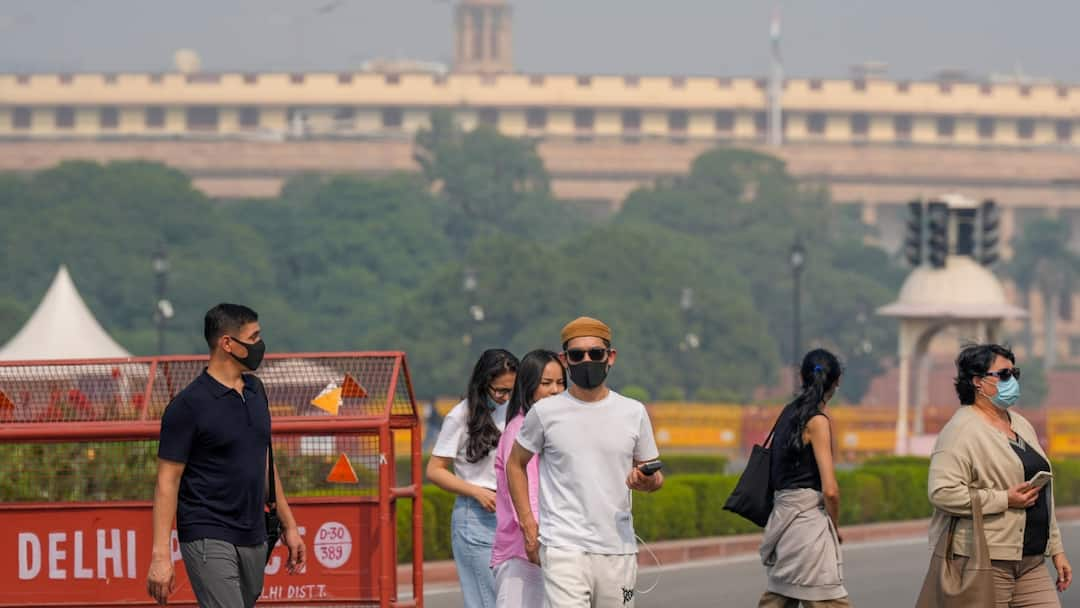Delhi AQI High, But National Capital Breathes Cleanest Post-Diwali Air Since 2015
As per experts, strong, sustained winds and warm weather in Delhi, rapidly dispersed a dense smoke layer and brought AQI down.

Delhi residents are breathing the second cleanest air post-Diwali in several years. Though the air quality of the national capital is still 'poor', it is quite better than the 'severe' air that Delhiites had to breathe for days after Diwali in previous years since 2015, according to a report by Times of India.
Despite extensive use of fireworks and increased stubble burning, this stability in air quality is reportedly credited to “strong wind ventilation" in the city, with speeds reaching 16 kilometres per hour.
According to the Central Pollution Control Board, on Saturday, the national capital recorded air quality in the "poor" category with an Air Quality Index (AQI) of 294. On Friday, the AQI peaked at 362 in the morning but gradually improved to 354 by noon, with an average AQI of 339 for the day. This contrasted sharply with the severe levels recorded post-Diwali in 2020 and 2021, as well as last year's AQI of 358.
An AQI between zero and 50 is considered 'good', 51 and 100 'satisfactory', 101 and 200 'moderate', 201 and 300 'poor', 301 and 400 'very poor', 401 and 450 'severe' and above 450 'severe plus'.
Anumita Roychowdhury, executive director of Research and Advocacy at the Centre for Science and Environment told the Times of India that this improvement in air quality is attributed to warmer conditions and reasonable wind speed.
Last year, Diwali was in November, when the daily temperature was much lower. However, this year the festival was celebrated in late October, when the city was much warmer. In fact, as per the India Meteorological Department (IMD), this October was the warmest in 73 years.
However, Abhishek Kar from the Council on Energy, Environment and Water (CEEW) warned that the air quality of the national capital region is likely to deteriorate in the coming days. He attributed it to the increased stubble burning in Punjab and Haryana and predicted AQI levels would consistently stay above 350 and occasionally breach the 400 mark during the winter season.
As per the TOI report, the contribution of stubble burning to the PM2.5 levels increased significantly, rising to 27.61% on Diwali day from 8.4% the previous day.
The air quality of Noida and Greater Noida saw marginal deterioration post-Diwali, despite the cities breathing cleanest year at this time in the eight years. Noida's average AQI was recorded at 274 on Friday, with Greater Noida's average at 258.
Related Video
Punjab News: AAP Leader Shot Dead During Wedding in Amritsar





































